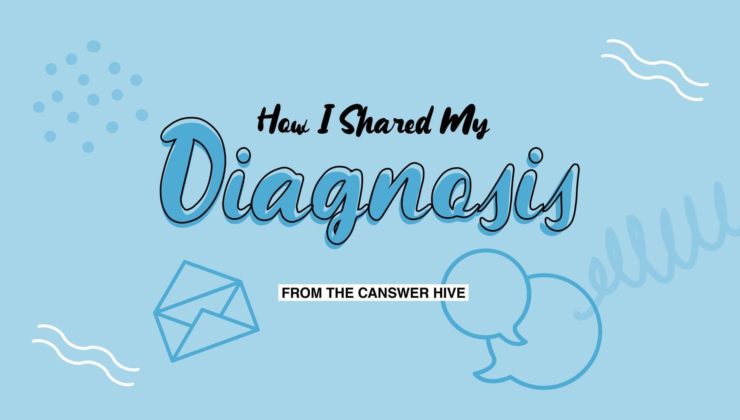Lubes, Moisturizers and Dilators: Managing the Sexual Side Effects of Breast Cancer Treatment

Women with breast cancer who have received chemotherapy or other cancer treatments such as endocrine therapy (hormone blocking medication) may experience vaginal changes such as dryness and pain with sex due to low levels of estrogen in the body.
Genitourinary syndrome of menopause (I know, a sexy term!) is the medical condition previously known as vaginal dryness or vaginal atrophy. GSM affects almost 80% of women treated for breast cancer. The delicate tissue of the vulva and the vagina are very sensitive to decreases in estrogen with treatment, and may lead to dryness, itching, painful sex, urinary urgency and increased frequency, and urinary tract infections.
How do we treat women with breast cancer with GSM?
Below is a step-by-step guide.
Avoid irritants!
The most important first step in addressing these symptoms is avoiding soaps or washes, or placing any other products with chemicals on the sensitive tissues of the vulva and vagina. Contrary to popular belief, the vagina does not need soap to be clean and using harsh products can upset the balance of good bacteria (lactobacilli) in the vagina. Ingredients to avoid are parabens, additives, dyes, fragrances, and other long-name chemicals. Once this delicate skin becomes irritated, it is tempting to use over-the-counter products touting “freshness” and “pH balance.” But these may contain ingredients that can cause allergic reactions. Some brands even use talc, which has been linked to ovarian cancer.
Moisturize Frequently
Frequent moisturization is essential to protect the delicate skin and decrease irritation. Moisturization is different from lubrication before sexual activity.
Organic coconut oil:
Daily use with a single-ingredient, organic coconut oil is a great first start. Yes, this is the same product you may already have at home, – just check that it has one ingredient in the ingredients list and that it is organic. A small amount is applied to the fingers and warmed so it creates an oil. This is applied daily after showering to the external vulva, best done at night. Coconut oil can also protect the delicate skin of the vulva if you experience burning with urination after sex. (Speaking of burning with urination after sex, if you are someone who is prone to bladder infections after sex, then daily cranberry pills — not cranberry juice– or a single low dose antibiotic pill after sex can help decrease these symptoms. Talk to your gynecologist to see if this may be a helpful treatment for you.)
Hyaluronic acid:
If after 3-4 weeks there is not a significant improvement in symptoms with organic coconut oil, you can try a higher-tech product like a hyaluronic vaginal moisturizer. Hyalogyn is available to order online, along with Bonafide Revaree suppositories available on hellobonafide.com. There may be other brands that contain this ingredient, so check the labels.
Vaginal estrogen:
Vaginal estrogen is the most effective method of treating GSM and it is safe to use in women with a history of cervical cancer, colon cancer, some ovarian cancers, and other types of cancers. It is more controversial in women with a history of breast cancer
Although vaginal estrogen has not been shown to increase the risk of breast cancer recurrence, we do know there is a small amount of absorption at the beginning of treatment. Therefore, if you have a history of breast cancer, vaginal estrogen may not be off-limits, but your medical oncologist may want you to try non-hormonal options first. Patients with a history of endometrial cancer cannot use vaginal estrogen.
Vaginal DHEA or vaginal testosterone:
Intrarosa, Prasterone, or dehydroepiandrosterone (DHEA, a form of testosterone) is a suppository placed in the vagina every night. It is FDA and Health Canada approved for painful sex and works in a mechanism similar to estrogen in the vagina. It works by being converted to the active testosterone in the tissue of the vulva and the vagina. It has not been found to increase estrogen levels in the blood and therefore may be a better choice for patients where estrogen is absolutely contraindicated.
Use Lubricants
Lubricants are a must! Every. Single. Time.
Lubricants are for sexual activity or using a dilator or other sexual device. Lubricants provide short-term relief of vaginal dryness and discomfort . They should not be used for daily moisturization (see above).
Lubricants may be water-, silicone-, or oil-based and are applied to the vulva, vagina, or penis (or to all 3!) before sexual activity. Water-based lubricants will not stain the sheets, but are sometimes sticky. Silicone-based lubricants last longer. It is important to avoid lubricants with unnecessary chemicals or gimmicks like flavors, tastes, or warming (Trojan and KY, I’m looking at you). Stick to basic lubricants, read the label and check that it is free of parabens. Some good brands without extra nonsense are Uberlube, Good Clean Love, and Sliquid. (Of note, if using condoms, do not use natural oils like coconut oil or olive oil since these can degrade latex.)
Sexual Activity and Dilators
Sometimes, when the level of estrogen in the body is kept very low with medications, the vagina can lose elasticity (stretchiness) and become narrower and even shorter. Regular, painless sexual activity can help maintain vaginal health by maintaining the shape of the vagina while estrogen levels are very low.
The same effect can be accomplished using a dilator. Available in sets online, dilators are rigid or firm tubes placed in the vagina three times per week to maintain the shape of the vagina during treatment. I recommend using the smallest size at first. Talk to your gynecologist to see if they recommend a dilator regimen for you. They may be able to walk you through insertion in the office. (Tip – use a mirror!)
A vibrator can also be used therapeutically to stimulate blood flow and maintain vaginal function in women with or without a partner. (Yes, this doctor just gave you permission to use a vibrator!) Similarly, a lubricated vibrator can be used to gently stretch the vaginal tissues. In women who experience vaginismus (the involuntary contraction of the muscles surrounding the vagina), the progressive use of vaginal dilators with relaxation and mindfulness exercises can facilitate re-initiation of painless penetrative sex.
Additional Tips
Check out the Ohnut if you have pain with deep penetration, which is a comfortable ring placed around the penis and acts like a “bumper” to minimize the depth of penetration. Find a pelvic floor physical therapist in your area and ask your gynecologist for a referral if you have issues with painful sex and have been told you have pelvic floor muscle dysfunction or vaginismus.
*As always, before introducing any type of new treatment, supplements or medication into your medical plan, check with your primary care physician first.

Kristin E. Rojas, M.D., F.A.C.O.G., F.A.C.S. is a fellowship-trained breast cancer surgeon and a board-certified gynecologic surgeon with a passion for comprehensive wellness in women’s cancer care. She is an Assistant Professor of Surgery of the Dewitt Daughtry Department of Surgery at University of Miami. She has no financial disclosures related to the content in this article. For more information, you can check out the MUSIC™ Sexual Health After Cancer Program Instagram at @MUSIC_sexaftercancer or Dr. Rojas’s women’s health-focused Instagram @kristinrojasmd.
Did you tune in to our Rethink Real Talk: Sex and Body Image? Click here to catch Dr. Rojas and our other panelists breakdown taboos on this important topic. Also, click here for more resources on sex after a breast cancer diagnosis.








